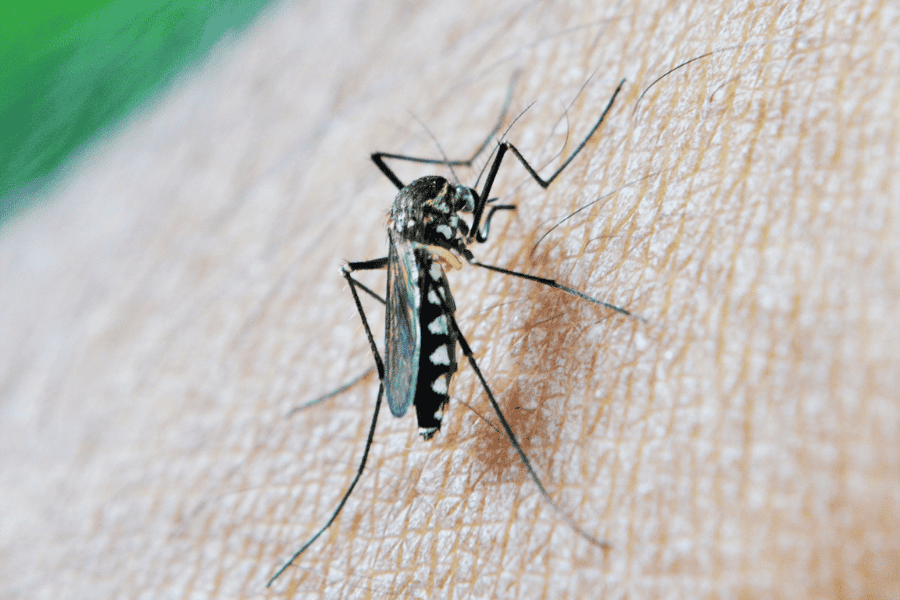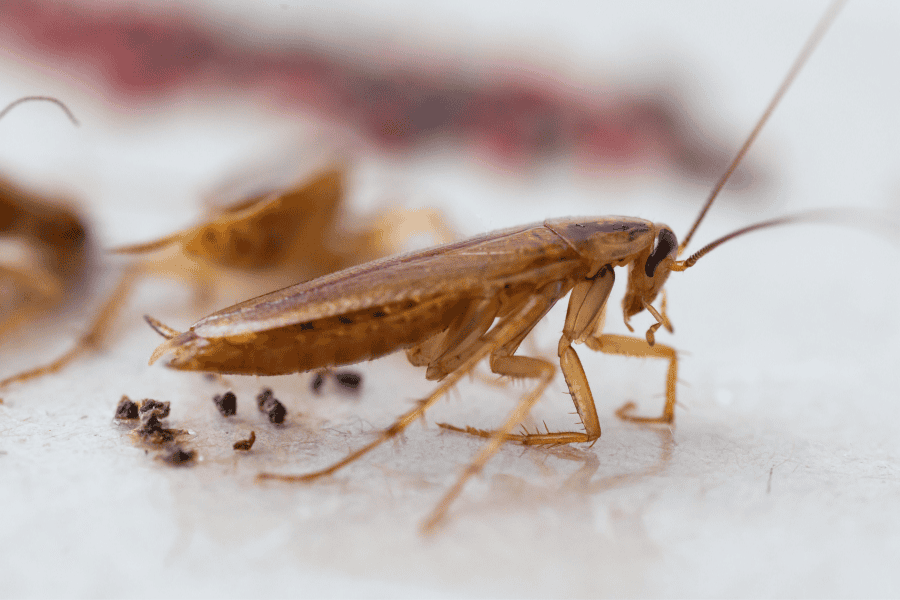READY TO GET STARTED?
REQUEST A FREE ESTIMATE
Fill out the form below or call (888) 466-7849 for a free, no-obligation estimate.

Living in South Florida means sunshine, beaches, and unfortunately—pests. The region’s warm, humid climate creates the perfect environment for insects and wildlife to thrive year-round. Whether it’s ants in your kitchen, termites in your walls, or mosquitoes in your backyard, pests can become a serious problem for homeowners and business owners alike. So when an infestation strikes, your first question is likely, “How do I choose the best pest control near me?“
In this blog, we’ll explore what makes a pest control company stand out, the types of pests commonly found in South Florida, treatment methods to expect, and the benefits of hiring a professional. By the end, you’ll know exactly what to look for—and what to avoid—when choosing a local pest exterminator to keep your property pest free.
Pest control is not just about killing bugs—it’s about protecting your home or business, your health, and your peace of mind. An ineffective or careless pest control approach can lead to recurring infestations, property damage, and even exposure to harmful chemicals.
Choosing the best pest control near you ensures that you’re getting expert knowledge, safe and targeted treatment options, and long-lasting results. Whether you’re dealing with a current pest problem or want to prevent one before it starts, the right pest control company can make all the difference.
With so many pest control companies offering their services in South Florida, it’s important to know how to evaluate your options. Here’s what to consider when choosing a provider:
Look for companies that have years of experience serving your local area. Read reviews on Google, Yelp, or the Better Business Bureau to see how past clients rate their services. A strong reputation is a reliable indicator of quality work.
Always ensure that the pest control company is fully licensed and insured in the state of Florida. This not only protects you but also guarantees that their technicians are trained and certified in safe application practices.
The best companies don’t just spray and leave—they offer a variety of solutions to address different pest issues. Whether you’re dealing with rodents, roaches, termites, or wildlife, a full-service provider should have specialized treatment plans for each type of pest.
If you’re concerned about your family, pets, or the environment, choose a company that offers eco-friendly pest control options. Many pest control services now incorporate green treatments that are just as effective as traditional chemicals but safer for your home and surroundings.
When searching for the “best pest control near me,” prioritize companies that are locally owned and operated. A local pest exterminator will be more familiar with the seasonal pest patterns and common pest species in South Florida, allowing them to tailor their treatments more effectively.
Top pest control companies stand behind their work. Ask about warranties, satisfaction guarantees, and follow-up services. Clear communication, responsive customer service, and transparency in pricing are all signs of a trustworthy provider.
South Florida is home to a wide range of common pests that can invade both homes and businesses. A reputable pest control company should be equipped to handle them all. Here are a few of the most frequent offenders:
From tiny sugar ants to invasive carpenter ants, these pests are persistent and often difficult to eliminate without professional help.
Subterranean and drywood termites cause significant structural damage if not caught early. Annual inspections and preventive treatments are essential.
Roaches are not only disgusting—they carry bacteria and can worsen allergies. German and American cockroaches are the most common in South Florida.
Known for spreading diseases like West Nile and Zika virus, mosquitoes are a serious outdoor nuisance in Florida’s climate.
Mice and rats can chew through wires, contaminate food, and multiply quickly. Integrated rodent control is a must in urban and suburban settings.
Wasps, hornets, fire ants, and venomous spiders like the black widow can pose health risks, especially to children and pets.
These blood-sucking pests are notoriously hard to eliminate. Professional heat treatments and thorough inspections are often required.
Top-tier pest control services offer a variety of treatment plans to target the specific pests in and around your property. These methods can be customized based on your needs, whether you’re dealing with a one-time issue or need year-round protection.
The best pest control companies use Integrated Pest Management, a science-based approach that combines prevention, monitoring, and control. IPM minimizes pesticide use and focuses on long-term solutions, making it ideal for environmentally conscious customers.
Many South Florida companies now offer green pest control options made with natural or low-toxicity ingredients. These eco-friendly products are especially useful in homes with children, pets, or sensitive individuals.
Bait stations are commonly used for ants, cockroaches, and termites. They attract pests to a food source laced with a slow-acting poison that’s taken back to the colony for widespread elimination.
Used for both indoor and outdoor applications, barrier sprays create a protective zone around your property to keep pests out.
For severe infestations—especially of drywood termites—whole-structure fumigation may be necessary. This is a more invasive option, typically requiring vacating the property for a few days.
To keep pests from coming back, many companies offer exclusion services that seal up cracks, gaps, and other entry points.
Routine pest control services ensure that pests don’t return. Many companies offer monthly, bi-monthly, or quarterly plans depending on your needs.
While DIY traps and sprays may work for a while, they often only address the surface of a much larger issue. Here are a few reasons why hiring a professional pest control company is the smart choice:
Not all pests are created equal. A trained technician can correctly identify the type of infestation and choose the most effective treatment.
Professionals don’t just treat the problem—they get to the root of it. This ensures that infestations don’t reoccur a few weeks later.
From using child- and pet-safe products to proper handling of hazardous chemicals, professional services reduce health risks to your family or employees.
While DIY solutions may seem cheaper initially, recurring infestations can cost you more in the long run. Professional pest control saves you time, stress, and money.
Knowing your home or business is being protected by experts gives you the confidence to focus on what matters most.
Whether you’re a homeowner dealing with ants in the kitchen or a business owner concerned about rodents in your restaurant, the best pest control near you should deliver:
Thorough inspections of your property
Customized treatment plans based on your needs
Transparent pricing and clear explanations
Regular maintenance options to stay pest free
Friendly, professional service every time
Look for a pest control provider that understands the unique needs of both residential and commercial properties in South Florida.
Finding the best pest control near you isn’t just about hiring someone with a sprayer—it’s about partnering with a company that truly cares about protecting your property. Look for a local pest exterminator with a strong reputation, a wide range of services, eco-friendly options, and a dedication to customer satisfaction.
Don’t wait until pests take over your home or business. Whether you’re battling a current infestation or want to prevent one in the future, a proactive approach with the right company will keep you pest free all year long.
Let us help you reclaim your space from unwanted pests. We proudly serve homes and businesses across South Florida with safe, effective, and affordable pest control solutions.
Call or click the link below to request your FREE quote today and discover why we’re the trusted choice for pest control in your neighborhood.

Living in Pompano Beach means enjoying warm weather year-round, but it also comes with dealing with seasonal pests. The city’s tropical climate creates perfect conditions for pests like mosquitoes, termites, ants, and rodents. Here’s how to protect your home effectively, regardless of the season, with pest control near me.
Pompano Beach’s humid weather and lush surroundings make it an ideal breeding ground for pests. Each season brings its own challenges:
Knowing these patterns can help you take proactive measures to stay pest-free.
Professional pest control services can provide tailored solutions for Pompano Beach pests, using targeted, eco-friendly treatments to address infestations effectively.
Consistency is key to keeping your home comfortable and pest-free. By combining preventative measures with professional expertise from pest control near me, you can tackle seasonal pests and enjoy peace of mind in every season. Reach out to a local Pompano Beach pest control expert today for customized solutions and a pest-free home!

If you’re living in Atlanta, Georgia, you know that mosquito season is no joke. From late spring through early fall, these buzzing, biting pests can turn your relaxing backyard into an unbearable space. If you find yourself searching for “pest control near me”, you’re not alone—and the good news is, help is right around the corner.
With the right mosquito control strategy and pest control services, you can reclaim your yard and enjoy the warm Georgia evenings without worrying about itchy bites or dangerous diseases. Here’s everything you need to know about dealing with mosquito problems in Atlanta—and how professional pest control can make all the difference.
In Atlanta, mosquito season typically begins as early as March and can last all the way through October, depending on the weather. Mosquitoes thrive in warm, humid conditions, which makes Georgia’s climate ideal for long-lasting mosquito activity.
The season peaks during the hot summer months—June through September—when standing water is more abundant and breeding conditions are perfect. If left untreated, a single backyard can host hundreds, if not thousands, of mosquitoes, creating a serious pest infestation that affects your health, comfort, and quality of life.
Mosquitoes aren’t just annoying; they can be dangerous. In Georgia, mosquitoes are known carriers of diseases like West Nile virus, Eastern Equine Encephalitis, and Zika virus. For families with children or pets, this poses an increased risk that shouldn’t be taken lightly.
Even if you’re only dealing with a mild nuisance, a mosquito problem can quickly escalate. Standing water, overgrown vegetation, and shaded areas provide perfect breeding grounds, turning your yard into a hotbed for pests in a matter of days.
When you search for pest control near me, you’re likely looking for an immediate and effective solution. That’s where professional pest control services step in. A licensed pest control technician can assess the extent of your mosquito problem and create a customized treatment plan tailored to your yard.
Backpack Fogging or Misting: A technician will spray a fine mist around shrubbery, trees, fences, and other mosquito-prone areas to kill adult mosquitoes on contact. This method also provides a residual effect that lasts for weeks.
Larvicide Applications: By treating standing water with safe and effective larvicides, technicians can stop mosquitoes at the source—preventing them from maturing into biting adults.
In2Care® Mosquito Traps: This innovative, eco-friendly trap attracts female mosquitoes and spreads a fungus that kills both larvae and adults. In2Care offers long-term mosquito control with minimal environmental impact.
Ongoing Treatment Plans: Monthly or bi-weekly treatments during mosquito season can prevent future infestations and help you maintain a pest-free yard.
In addition to hiring pest control services, homeowners can take several steps to reduce mosquito populations around the home:
Dump out flowerpots, bird baths, buckets, kiddie pools, and clogged gutters—mosquitoes lay their eggs in stagnant water.
Keep grass trimmed and bushes pruned to eliminate shady resting places for adult mosquitoes.
Mosquitoes are weak fliers. Installing fans on patios or decks can help keep them away during gatherings.
Plants like citronella, lavender, and marigolds are natural deterrents. Add them to your landscaping for extra protection.
Unfiltered or untreated pools are perfect breeding grounds for mosquitoes. Ensure your pool is clean and chemically balanced.
These simple steps, combined with professional pest control, can drastically reduce the number of mosquitoes on your property.
While DIY solutions may offer temporary relief, they rarely address the root of the problem. Partnering with a professional pest control company in Atlanta ensures:
Thorough inspections to identify hidden breeding grounds
Targeted treatments that are safe for your family and pets
Ongoing support to help you prevent future pest problems
Peace of mind knowing your home is protected
When you work with local experts, you benefit from their understanding of Georgia’s unique climate and pest behaviors. They’ll tailor their approach specifically to your needs, ensuring better results and long-term protection.
Don’t let mosquitoes ruin your outdoor space this season. Whether you’re dealing with an active infestation or just want to stay ahead of the problem, a quick search for “pest control near me” will lead you to the local experts who can help.
By investing in mosquito control and year-round pest control services, you can protect your family, enjoy your backyard again, and avoid the dangers that come with ignoring a pest infestation.
Ready to take back your yard from mosquitoes and other pests? Our team of experts in Atlanta, GA is here to help you every step of the way. From custom treatment plans to ongoing support, we’ll ensure your home stays protected all year long.
Don’t wait until mosquito season is in full swing. Call us now or click the link below to request a FREE pest control quote today and enjoy peace of mind all summer long!

If you’ve been searching for “pest control near me” or considering how to manage pests while keeping your home safe for your family and the environment, you’ve likely come across the term green pest control. But what exactly does it mean, and how does it differ from traditional methods? This guide will explain the methods used in green pest control, the benefits of choosing environmentally-friendly pest control services, and why hiring a professional pest control company with excellent customer service is the best way to protect your home from local pests.
Green pest control focuses on minimizing the use of harmful chemicals while still effectively managing pest problems. These eco-friendly methods prioritize the health of people, pets, and the environment. Instead of relying on broad-spectrum chemical pesticides, green pest control uses integrated pest management (IPM) techniques to eliminate pests while preventing future infestations.
If you’re dealing with a pest problem, it’s always best to work with a trusted pest control company that offers comprehensive residential pest control services. A local pest exterminator can provide the expertise and tools needed to eliminate pests while protecting your home from future infestations.
With customized pest control plans, ongoing pest inspections, and exceptional customer service, professional pest control services take the guesswork out of managing pests. Whether you’re looking for green pest control methods or need immediate help with a pest problem, searching for a “pest control near me” will connect you with local experts who understand the challenges of managing local pests.
Green pest control isn’t just about eliminating pests—it’s about doing so in a way that protects your family, pets, and the environment. By choosing a pest control company that prioritizes sustainable practices, you’re taking a proactive step toward a healthier home and planet.
For eco-friendly pest control services in Georgia, reach out to your local pest exterminator today. Protect your home, solve your pest problems, and enjoy the peace of mind that comes with a pest-free space.
Looking for expert pest management? Request a green pest control plan today!

If you’ve spotted German cockroaches in your Georgia home, you’re not alone. These tiny, resilient pests are among the most common household invaders in the state. Unfortunately, they’re also one of the most difficult pests to eliminate. Understanding why the German cockroach is so hard to control starts with knowing how they get into your home, their rapid reproduction rates, and the challenges they present once they infest. This blog explores these factors and provides prevention tips to keep your home cockroach-free.
German cockroaches are expert hitchhikers. They often find their way into homes by latching onto items such as:
Once inside, German cockroaches quickly seek out food, water, and shelter. Kitchens and bathrooms are their favorite locations, as these areas provide an abundance of all three. Even a tiny spill, crumbs, or leaky pipe can be enough to sustain a thriving population.
The prolific reproduction of German cockroaches is a key reason they’re so hard to eliminate. Here’s why:
Once German cockroaches settle in, several factors contribute to their persistence:
Eliminating German cockroaches requires a multi-faceted approach. Here are some steps to consider:
Prevention is key to keeping German cockroaches out of your home. Here are some effective prevention tips:
While DIY methods can help manage small infestations, German cockroaches often require professional intervention for complete eradication. Here’s why:
German cockroaches are more than just a nuisance; they can contaminate food, trigger allergies, and spread harmful bacteria. Their ability to multiply quickly, adapt to their environment, and resist many pest control products makes them particularly challenging to eliminate. By understanding how they get into your home, why they reproduce so rapidly, and what makes them so persistent, you can take proactive steps to protect your home.
For homeowners in Georgia dealing with German cockroaches, professional help is often the most reliable solution. If you suspect an infestation, contact a trusted pest control company to reclaim your home and ensure it stays pest-free. Don’t wait until the problem escalates—request a free consultation today and take the first step toward a cockroach-free home.